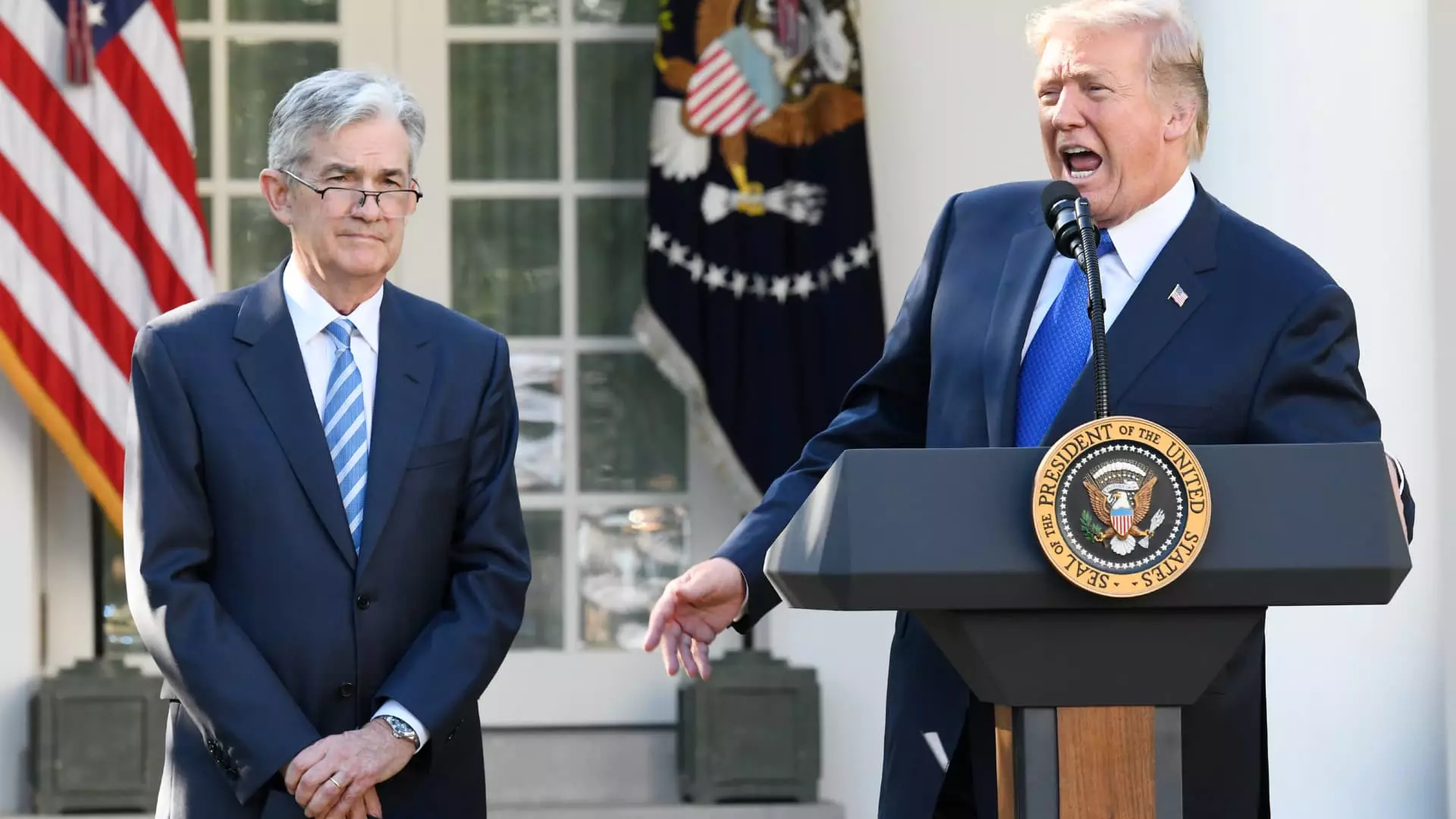In an intriguing twist of irony, President Donald Trump, the self-proclaimed “businessman” and “deal maker,” has once again taken to social media to voice his unconventional economic strategy. Following an unexpected rise in U.S. job hiring, Trump publicly demanded Federal Reserve Chairman Jerome Powell to slash interest rates by an audacious full percentage point. This demand exists within a context that can only be described as puzzling: while the economy seems to be holding its own, the president is advocating for measures that would fundamentally alter the financial landscape. It elicits a cacophony of questions about the nature of economic stewardship, the depth of understanding at the highest levels of power, and the potential ramifications of Trump’s radical approach.
Trump’s cavalier stance—a stark contrast to the nuanced approach typically associated with monetary policy—raises eyebrows. On one hand, rising payroll figures might suggest a strengthening economy; on the other, the economy’s resilience amid external pressures—namely, tariffs and geopolitical tensions—demands a more cautious outlook. The perceived need for aggressive rate cuts as a means of economic stimulation reflects a troubling overreliance on financial manipulation rather than addressing core issues. Shouldn’t the emphasis be on sustainable growth rather than short-term fixes?
Ignoring Historical Context
Moreover, Trump’s recent calls for drastic rate decreases appear to disregard historical patterns in economic policy. The last instances of a full percentage point cut occurred in March 2020, an emergency measure in the face of the Covid-19 pandemic. To flippantly suggest such drastic action again, particularly during a time when mixed economic indicators demand a balanced approach, demonstrates a concerning disconnect from the realities of economic governance.
When analyzing the president’s repetitive tirade against Powell—characterizing him as “too late” and a “disaster”—one can’t help but wonder if Trump is projecting his frustrations onto someone who should ideally be apolitical, insulated from the whims of party leaders. The Federal Reserve’s independence is central to maintaining credible and effective monetary policy. Yet, Trump’s continuous pressure to pander to his subjective interpretations of economic success suggests a disturbing inclination towards undermining that independence.
The Mindset Behind the Madness
Digging deeper, this demands contemplation of what drives Trump’s incessant demands for lower rates apart from a plain misunderstanding of economic fundamentals. Could it be a desperate attempt to fuel market sentiment that has shaped his tenure? Does he seek to inflate stock prices further to maintain a facade of prosperity ahead of the 2024 elections? The repercussions of these manipulations can be deeply detrimental. If borrowing costs remain artificially low, it may lead to more excessive risk-taking, ultimately inviting asset bubbles that will exacerbate financial instability in the long run.
Trump’s recent remarks echo a broader ideological obsession with tactical economic short-termism, where immediate gains outweigh responsible, long-term planning. His insistence on viewing other central banks’ actions through a narrow lens while ignoring the economic nuances at play globally shows a lack of understanding of economic interdependence. The complexities of inflation, international monetary policy, and local economic stimuli don’t fit neatly into his rhetoric, which thrives on oversimplified soundbites.
The Risks of Political Interference
Ultimately, the concerns painted by Trump’s intervention are amplified by the risks of political meddling within economic parameters. While it is crucial for leaders to express their vision, the president’s methods strike a discordant note. In a landscape already rife with uncertainty—heightened by tariffs, trade wars, and international discord—any signal of instability from the Fed runs the risk of painting the U.S. economy in a precarious light.
Investors digesting Trump’s words could be far less forgiving than the president imagines. A potential backlash may not only erode the stability he seeks to elicit but also set the stage for unforeseen crises that intertwine with the workers he claims to champion. In this conflicting arena, the stakes could not be higher; hence, one must ponder if the quest for interest rate cuts is more a political maneuver than a genuine economic imperative.
The saga continues as speculation oscillates in the wake of quarterly reports, and the debate intensifies around the President’s perceived understanding of our financial future versus the well-rooted instincts of economic conservatism that demand vigilance, balance, and a transcendence above populist whims.


Leave a Reply